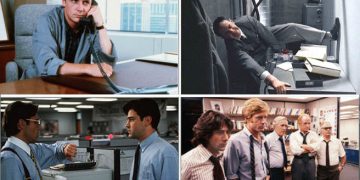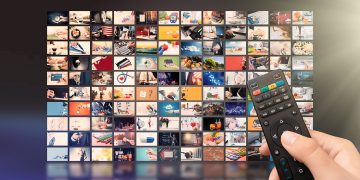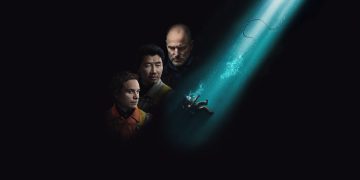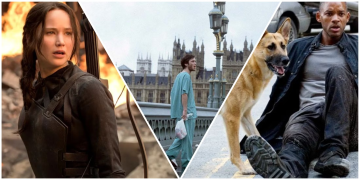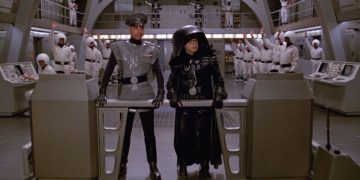Science fiction has always done more than predict the future — it reveals uncomfortable truths about the present. The best sci-fi films act as mirrors to our world, amplifying issues like inequality, surveillance, climate change, and systemic oppression. Wrapped in visual effects and imagined futures, these stories speak to real human concerns — and often, they do it more honestly than mainstream drama.
If you think sci-fi is just spaceships and lasers, think again. It’s one of cinema’s most powerful tools for social commentary, and these films prove it.
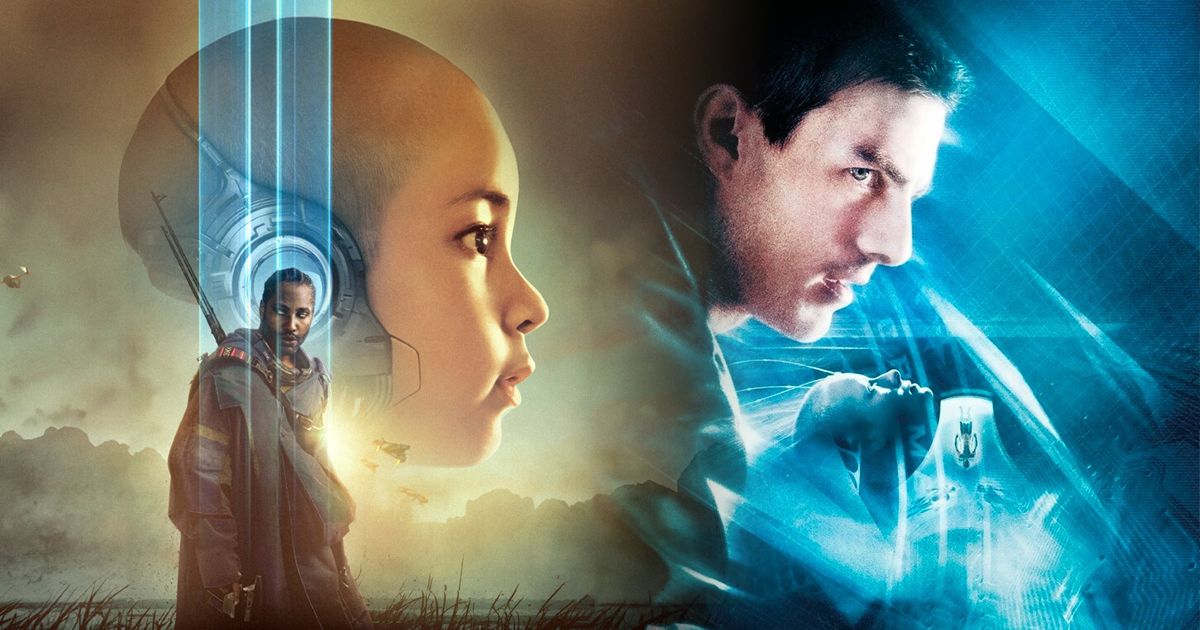
Image: Utopian settings in sci-fi challenge the idea that the future must always be bleak
1. Why Sci-Fi Is More Than Fiction
The Power of Speculation
Science fiction thrives on “what if?” questions. What if AI becomes conscious? What if climate change accelerates unchecked? What if society collapses under its own weight? These speculative scenarios allow filmmakers to exaggerate real-world tensions, giving audiences the space to think critically — all within the safety of a fictional universe.
By exploring hypothetical futures, sci-fi holds a lens up to contemporary anxieties. Whether it’s an alien invasion or a dystopian regime, the genre always reflects back something familiar — something now.
When Entertainment Becomes Allegory
Not every viewer realizes that The Matrix is about systems of control, or that Gattaca critiques eugenics and classism. That’s the genius of sci-fi: it weaves allegory into narrative, embedding social critique beneath thrilling plots and futuristic tech.
“Good science fiction doesn’t tell you what to think — it forces you to think.”
— The Guardian: How Sci-Fi Mirrors Society
2. Key Real-World Issues Reflected in Sci-Fi
Class Divide and Social Stratification
Few genres portray economic inequality as viscerally as sci-fi. In Elysium, the wealthy live on a pristine space station while the rest of humanity suffers on a polluted Earth. Snowpiercer turns a train into a literal class system, with elites at the front and the poor crushed in the tail.
These films dramatize real-world divides between rich and poor, showing what happens when power becomes physically unreachable — and who pays the price.
Technology and Surveillance Culture
We’re living in the age of algorithms, facial recognition, and digital footprints — and sci-fi has been warning us for years. Minority Report introduced predictive policing, while The Circle explored the dangers of surveillance capitalism. Today, those speculative ideas are closer to reality than ever.
Films like these ask: How much privacy are we willing to give up for convenience or safety? And what happens when data knows us better than we know ourselves?
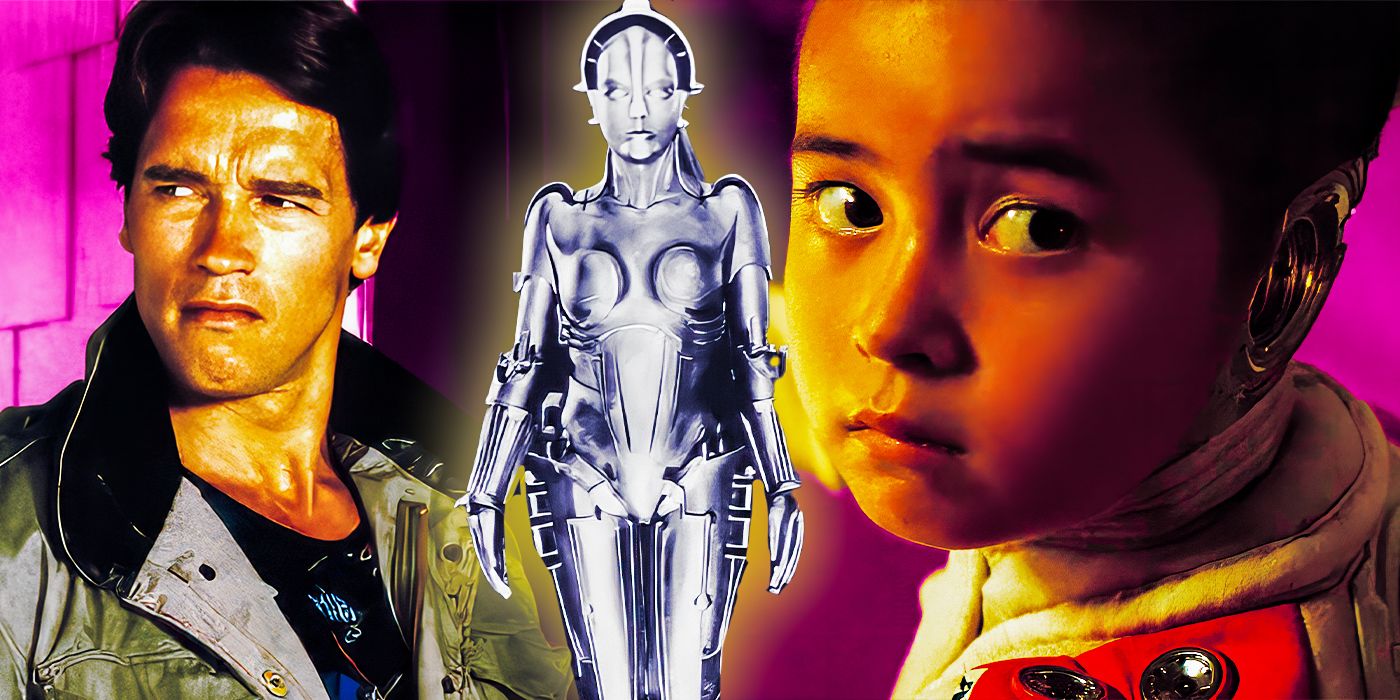
Image: Science fiction often exaggerates technology to warn us about our relationship with it
Environmental Crisis and Climate Anxiety
While climate change documentaries inform, sci-fi visualizes the aftermath. Interstellar depicts Earth as a dust-ridden wasteland, forcing humanity to flee. WALL-E, while charming, is a stark warning about consumerism and ecological collapse. These stories don’t just show disaster — they provoke action.
Sci-fi holds up a chilling truth: if we don’t change, the fiction we watch today may become our reality tomorrow.
Racism, Identity, and Otherness
Sci-fi also confronts social exclusion and systemic racism in metaphorical ways. District 9 uses aliens as a stand-in for apartheid-era discrimination in South Africa. Gattaca critiques genetic elitism and the dangers of meritocratic eugenics. Meanwhile, Sorry to Bother You delivers satire with surrealist sci-fi flair, targeting racial capitalism and identity code-switching.
These films use futuristic settings to unmask very current forms of injustice — and in doing so, make them impossible to ignore.
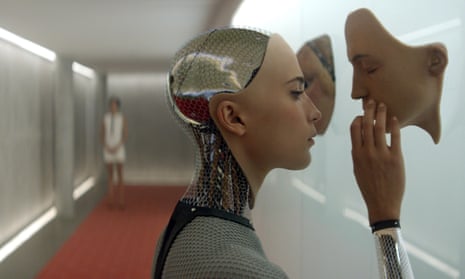
Image: Many modern sci-fi films are as political as they are imaginative
3. Sci-Fi Films That Mirror Our World
3.1 Children of Men (2006)
Directed by: Alfonso Cuarón
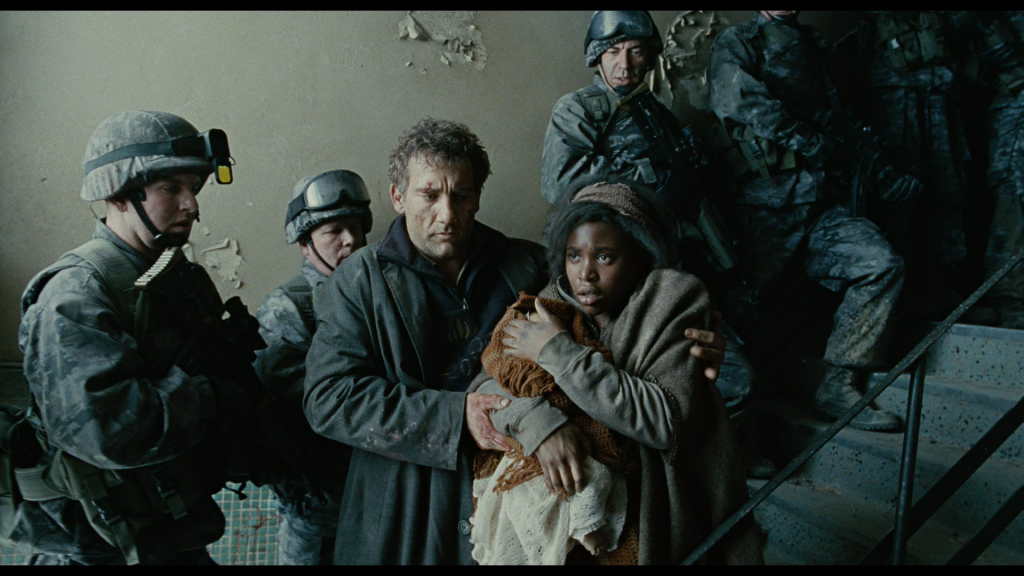
Set in a world where humans can no longer reproduce, Children of Men explores immigration, authoritarianism, and hopelessness in a collapsing society. The film’s gritty realism, shaky handheld camera, and emotionally grounded performances make it eerily prescient in the context of refugee crises and rising nationalism.
It’s not just a dystopian story — it’s a frighteningly accurate portrait of political apathy and xenophobia.
3.2 Her (2013)
Directed by: Spike Jonze

What happens when technology becomes emotionally intelligent? Her tells the story of a lonely man who falls in love with an AI operating system. But beneath the pastel aesthetics lies a profound commentary on isolation, digital intimacy, and emotional outsourcing in the modern world.
It forces us to ask: Is connection still human if it’s manufactured?
3.3 The Matrix (1999)
Directed by: The Wachowskis
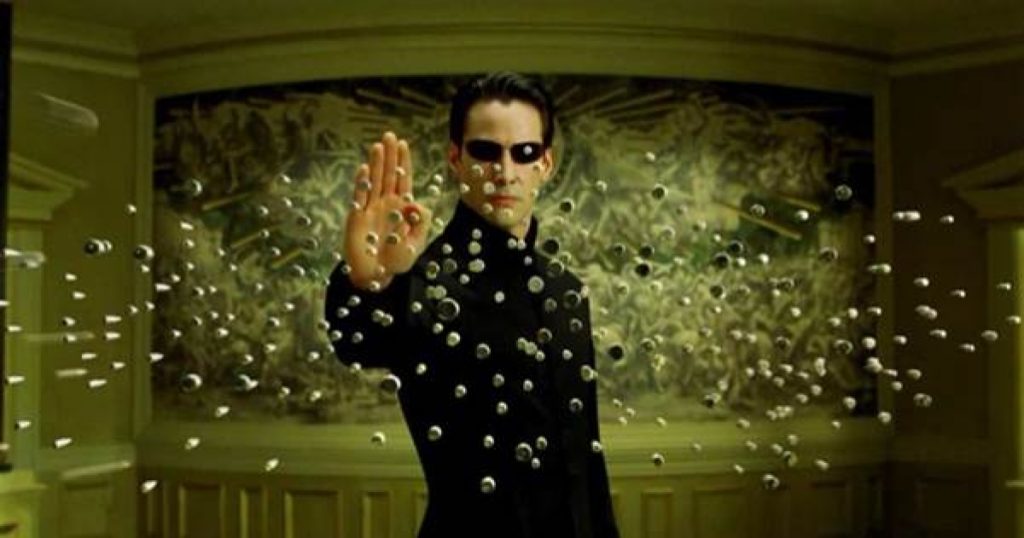
More than just iconic bullet-time action, The Matrix is a philosophical deep dive into simulated reality, control systems, and capitalist inertia. Neo’s awakening is about more than machines — it’s about seeing through the lies that uphold inequality.
It’s no surprise the film has become a cultural metaphor for “waking up” to real-world injustices — from corporate exploitation to mass surveillance.
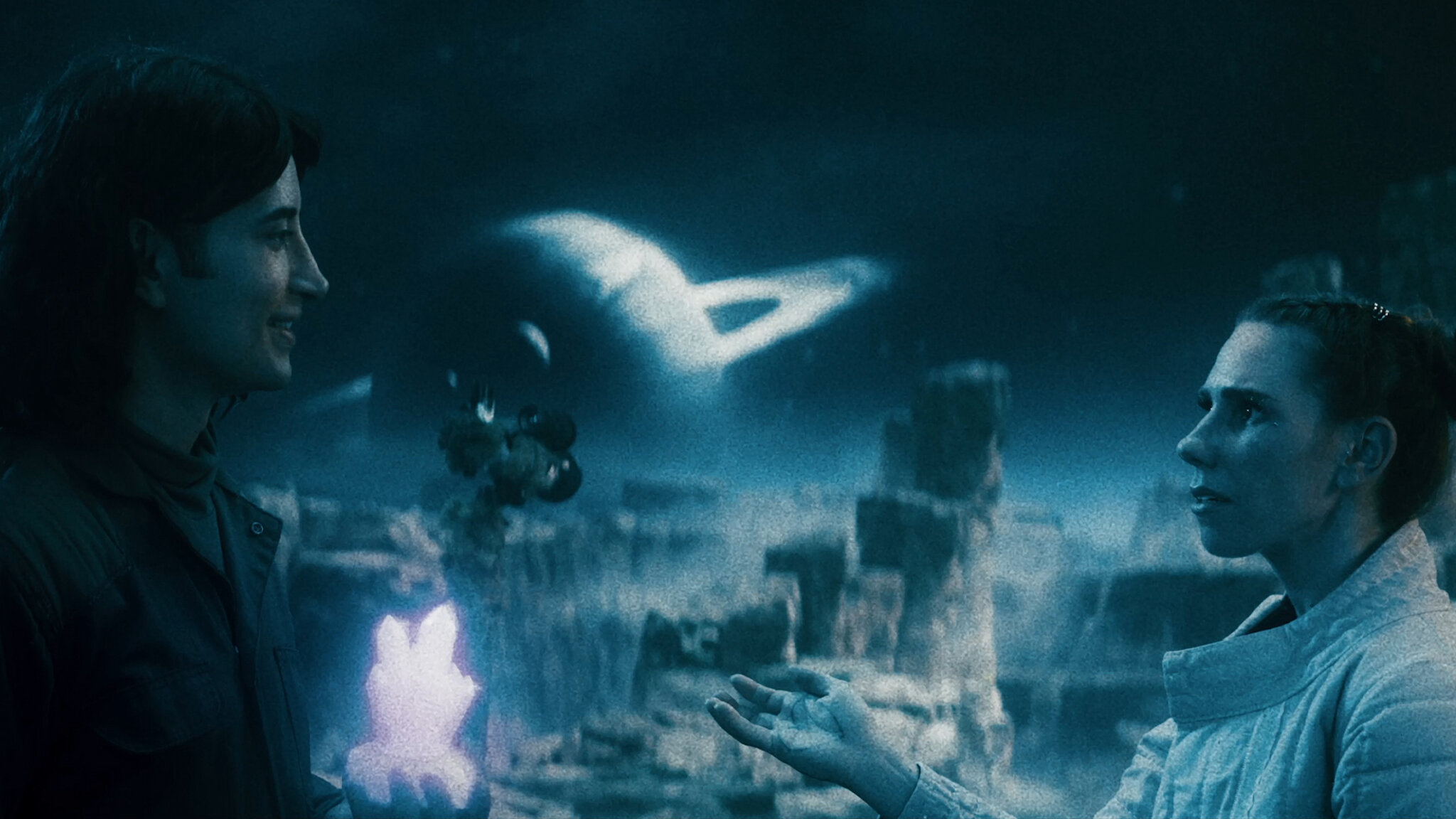
Image: Indie sci-fi often packs big ideas into small, intimate stories
3.4 Ex Machina (2014)
Directed by: Alex Garland
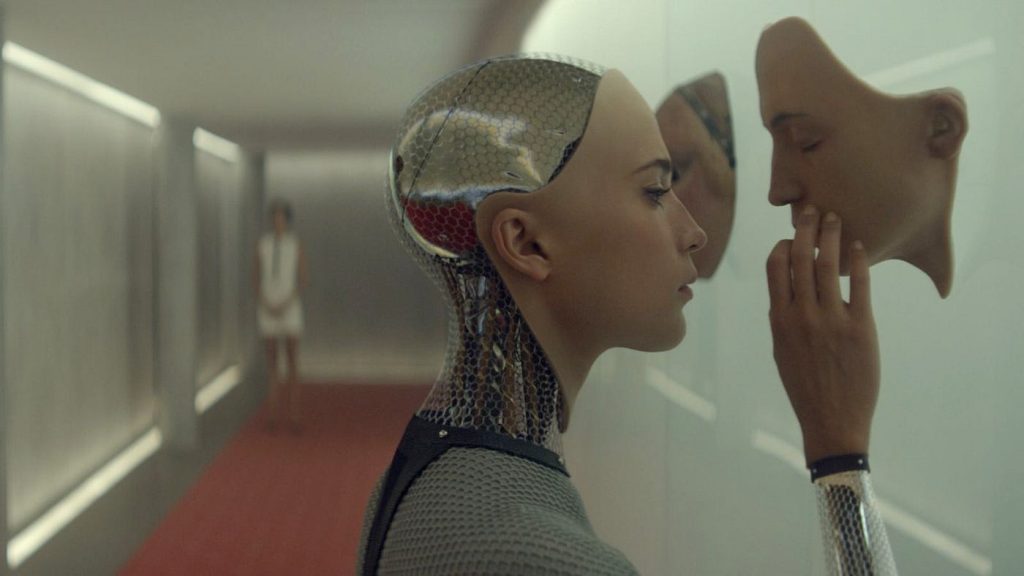
Ex Machina blurs the line between creator and created. It dives into gender dynamics, AI consciousness, and power manipulation, especially within a tech-bro culture that mirrors Silicon Valley. The film’s sterile, glass-walled setting only enhances its sense of clinical domination and objectification.
At its heart, it’s a chilling reminder of how easily technology can be used to replicate human prejudice — especially against women.
3.5 Molli and Max in the Future (2024)
Directed by: Michael Lukk Litwak
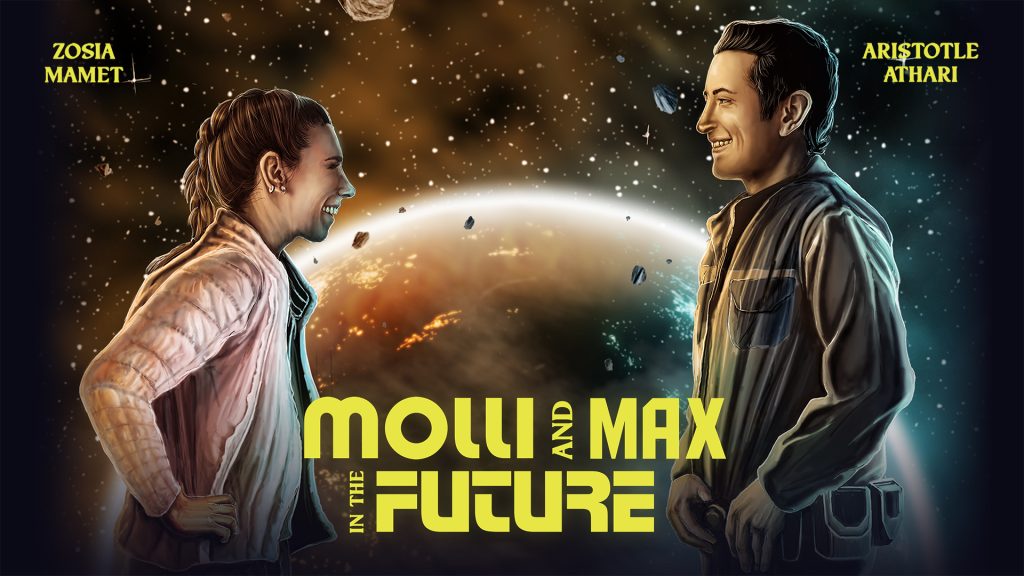
A recent indie gem, Molli and Max in the Future uses quirky visuals and offbeat humor to comment on gig economy fatigue, emotional detachment, and AI ethics. Set in a charmingly absurd future, the film feels like Her meets Before Sunrise, but with a modern lens on love, labor, and algorithms.
It’s proof that you don’t need explosions to make sci-fi socially powerful — just empathy, insight, and a touch of irony.
Sci-fi isn’t just about the future — it’s a reflection of the world we live in now.
4. Utopian Sci-Fi: Hope as Resistance
Imagining Better Futures
While dystopian narratives dominate sci-fi, utopian stories offer equally powerful insights. Rather than warning us of what could go wrong, they show us what might go right. Films like Star Trek (especially The Next Generation) imagine futures where cooperation, inclusivity, and scientific progress are the norm — not the exception.
In Tomorrowland, the central idea is that hope and creativity can reverse decline — a rare sentiment in modern genre storytelling. These stories challenge the assumption that darkness is more realistic than optimism.
“Utopian sci-fi doesn’t deny reality — it reclaims imagination as a tool for change.”

Image: Not all sci-fi is grim — some films remind us that the future can be bright
The Power of Positivity in Dystopian Times
In an era overwhelmed by headlines of conflict and collapse, hopeful sci-fi serves as resistance against cynicism. It encourages viewers to dream of a society where empathy, sustainability, and equity flourish. These aren’t just escapist fantasies — they’re proactive blueprints for what we could build if we chose differently.
Films like The Man Who Fell to Earth invite us to consider alien perspectives on our flaws, offering spiritual reflection and philosophical depth alongside narrative innovation.
5. Sci-Fi and Society: What’s Next?
The Rise of Diverse Voices and Narratives
Modern science fiction is evolving rapidly, with new voices from historically marginalized communities reshaping the genre. Directors like Jordan Peele (Nope, Get Out) and Boots Riley (Sorry to Bother You) use sci-fi frameworks to explore race, capitalism, and identity with bold, surreal energy.
Streaming platforms have also opened the door for international and indie creators, allowing films like Molli and Max in the Future to thrive. The result is a more nuanced, culturally varied sci-fi landscape that challenges the genre’s traditionally Eurocentric and male-dominated roots.
Tech-Enhanced Storytelling
Behind the scenes, technology is changing how sci-fi is made, not just what it’s about. Virtual production tools (like The Volume used in The Mandalorian) and AI-assisted workflows are enabling creators to tell more complex stories with tighter budgets.
This democratization of sci-fi filmmaking means we can expect even more experimental and visually stunning works from creators outside the Hollywood system — and more representation in front of the camera, too.
FAQs About Socially Reflective Sci-Fi
What makes a sci-fi movie socially relevant?
A socially relevant sci-fi film uses futuristic, speculative, or metaphorical elements to reflect on real-world issues — such as inequality, surveillance, environmental collapse, or political systems. The best examples balance entertainment with critique, making the viewer think about how the world works now, not just how it might look in the future.
Are there recent sci-fi movies that critique modern capitalism?
Yes. Films like:
- Sorry to Bother You — critiques corporate culture and racial capitalism
- Elysium — exposes healthcare inequality and class separation
- Molli and Max in the Future — dissects gig economies and dating in tech-driven society
These films use satire, symbolism, and speculative tech to critique capitalism’s excesses and blind spots.
What’s the difference between dystopian and utopian sci-fi?
- Dystopian sci-fi imagines futures shaped by failure — of government, environment, or technology. Think The Hunger Games, Blade Runner, or Snowpiercer.
- Utopian sci-fi imagines futures where society has evolved for the better — such as Star Trek, Herland (literature), or Tomorrowland.
Both subgenres serve important purposes: one warns, the other inspires.
Final Thoughts: Science Fiction With a Message
The best sci-fi isn’t just about space battles or sentient machines — it’s about who we are, who we fear becoming, and who we hope to be. Whether it’s The Matrix peeling back the layers of control or Children of Men laying bare a world without hope, these films challenge us to confront our reality through the lens of imagination.
Science fiction is more than storytelling. It’s a reflection. A warning. A dream. And more than ever, it’s a genre we need — not just to escape the world, but to better understand it.
Thank you for reading. Now, choose your timeline wisely.

